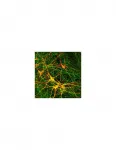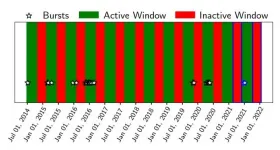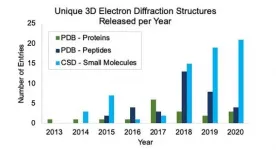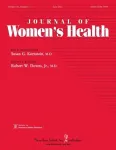Four percent of newly diagnosed cancer cases in 2020 may by associated with drinking alcohol, according to a global study published in The Lancet Oncology, leading its authors to call for greater public awareness of the link between alcohol and cancers and increased government interventions to reduce alcohol consumption in worst-affected regions.
The study estimates that men accounted for 77% (568,700 cases) of alcohol-associated cancer cases, compared with women, who accounted for 23% of cases (172,600). Cancers of the oesophagus, liver, and breast accounted for the largest number of cases.
Based on data from previous years, it is estimated that in 2020, there were more than 6.3 million cases of mouth, pharynx, voice box (larynx), oesophageal, colon, rectum, liver, and breast cancer. These cancers have well-established causal links to alcohol consumption, and the estimates of the direct associations with alcohol in the new study are the first of their kind for 2020. Disruptions to health care and cancer services across the world due to the COVID-19 pandemic are likely to have affected diagnosis rates for that year and may have led to an underestimation of new cancer cases in the recorded data. However, this would not be reflected in this study as estimates for 2020 were based on recorded data from previous years.
Alcohol consumption has been shown to cause DNA damage through increased production of harmful chemicals in the body, and affect hormone production, which can contribute to cancer development. Alcohol can also worsen the cancer-causing effects of other substances, such as tobacco.
"We urgently need to raise awareness about the link between alcohol consumption and cancer risk among policy makers and the general public. Public health strategies, such as reduced alcohol availability, labelling alcohol products with a health warning, and marketing bans could reduce rates of alcohol-driven cancer. Tax and pricing policies that have led to decreased alcohol intake in Europe, including increased excise taxes and minimum unit pricing, could also be implemented in other world regions. Local context is essential for successful policy around alcohol consumption and will be key to reducing cancer cases linked to drinking," says Ms Harriet Rumgay of the International Agency for Research on Cancer (IARC), France. [1].
In the new study, researchers established levels of alcohol intake per person per country for 2010 (ten years prior to the cancer case data, to allow for the time it takes for alcohol intake to affect possible cancer development) then combined them with estimated new cancer cases in 2020 (for the cancer types with the strongest evidence of a causal link to alcohol in their main analyses, plus all cancers combined except non-melanoma skin cancer) to estimate the number of alcohol-associated cancers in each country.
The authors used estimates for alcohol intake (in litres of alcohol per year per adult) based on alcohol production data, tax and sales data, surveys and opinion on unrecorded alcohol intake, and tourist alcohol consumption data. Using these they estimated how much alcohol people drank per day. [2]
Moderate drinking was classed as intake of 0·1 to 20 grams per day, the equivalent of up to two alcoholic drinks; risky drinking as 20 to 60 g per day, between two and six alcoholic drinks per day; and heavy drinking as more than 60 g per day, more than six alcoholic drinks per day. [2]
To estimate the effect of alcohol consumption on each cancer type included, the authors used figures outlining the risk of that cancer from alcohol consumption (per 10 grams of alcohol consumed per day) from existing scientific reports.
Globally, an estimated 4% (741,300) of all new cases of cancer in 2020 were associated with alcohol consumption. Cancers of the oesophagus (189,700 cases), liver (154,700 cases), and breast (98,300 cases) accounted for the largest number of new cases, followed by colorectal cancers and cancers of the mouth and throat.
Risky drinking and heavy drinking led to the largest proportion of cancer cases at 39% (291,800 cases) and 47% (346,400 cases) respectively. However, moderate drinking was also found to be problematic, with estimates that this level of drinking accounted for 14% (103,100 cases) of the total of alcohol-caused cases.
Eastern Asia and Central and Eastern Europe regions had the highest proportions of cancer cases that could be associated with alcohol at 6%, with the lowest proportions found in Northern Africa and Western Asia, both below 1%.
At a country level, the proportions of cancer cases associated with alcohol were estimated to be highest in Mongolia (10%, 560 cases) and lowest in Kuwait (estimated at 0%, less than 5 cases). The UK had an estimated 4% of cancer cases linked to alcohol (16,800), with the United States at 3% (52,700), Brazil at 4% (20,500 cases), India at 5% (62,100), China 6% (282,300), Germany 4% (21,500 cases) and France at 5% (20,000 cases - see Appendix table 4 for country level data).
"Trends suggest that although there is a decrease in alcohol consumption per person in many European countries, alcohol use is on the rise in Asian countries such as China and India, and in sub-Saharan Africa. In addition, there is evidence that the COVID-19 pandemic has increased rates of drinking in some countries. Our study highlights the contribution of even relatively low levels of drinking to rates of cancer, which is concerning, but also suggests that small changes to public drinking behaviour could positively impact future cancer rates." says Ms Rumgay. [1]
Amongst women, the largest proportions of cancer cases that were attributed to alcohol were estimated to be in the regions of Central and Eastern Europe (3%, 21,500 cases), and Australia and New Zealand (3%, 2,600 cases). Amongst men, the largest proportions of cancer cases linked to alcohol were found in Eastern Asia (9%, 275,900 cases) and Central and Eastern Europe (8%, 49,900 cases).
There are several limitations to the study, including the potential effect of the COVID-19 pandemic, which has impacted behaviours including alcohol drinking and also cancer services in many countries and could therefore have affected cancer risks and diagnosis rates. Further, the main study analysis did not take into account former drinking, or any relationships between tobacco or obesity with alcohol, which could have attributed some cases to alcohol that were actually driven by, for example, smoking. The authors also note that in some cases, including Mongolia, they may have over-estimated liver cancers that could have been caused by alcohol because of a possible interaction with Hepatitis B and C virus infection. Further, cancer case records may be of limited quality, especially for low and middle-income countries.
Writing in a linked Comment, Professor Amy C. Justice, Yale University, USA, (who was not involved in the study), notes that estimating the effects of alcohol intake on cancer rates across countries is notoriously difficult. She writes that a quarter of alcohol purchases are not captured by government data, making it difficult to estimate accurate sales figures. She said "...achieving a solid understanding of the burden of cancer associated with alcohol use, underlying mechanisms, and how best to intervene rely on accurate measures of alcohol exposure... Until we address limitations in measurement, we might be underestimating health risks, especially cancer risks, associated with alcohol."
INFORMATION:
NOTES TO EDITORS
This study did not receive direct funding. It was conducted by researchers from the International Agency for Research on Cancer, France, Centre for Addiction and Mental Health, Canada, the University of Toronto, Canada, Centre for Research and Information on Substance Abuse, Nigeria, American Cancer Society , USA, Netherlands Comprehensive Cancer Organisation, the Netherlands, Erasmus MC University Medical Centre, the Netherlands, Sechenov First Moscow State Medical University, Russia and Technische Universität Dresden, Germany, full list at the end of the Article.
[1] Quote direct from author and cannot be found in the text of the Article.
[2] The authors took account of tourist alcohol consumption data in order to calculate how much of the alcohol in the country was accounted for by the local population only.
A standard drink was defined using guidance derived from Scottish Health Action on Alcohol Problems and the European Medicines Agency and as used previously, for example in https://www.euro.who.int/en/health-topics/disease-prevention/alcohol-use/publications/2020/alcohol-and-cancer-in-the-who-european-region-an-appeal-for-better-prevention-2020
Estimates of alcohol consumption overall were reduced by one fifth to account for any alcohol wastage and under-reporting of consumption in self-report surveys.
The labels have been added to this press release as part of a project run by the Academy of Medical Sciences seeking to improve the communication of evidence. For more information, please see: http://www.sciencemediacentre.org/wp-content/uploads/2018/01/AMS-press-release-labelling-system-GUIDANCE.pdf if you have any questions or feedback, please contact The Lancet press office pressoffice@lancet.com
IF YOU WISH TO PROVIDE A LINK FOR YOUR READERS, PLEASE USE THE FOLLOWING, WHICH WILL GO LIVE AT THE TIME THE EMBARGO LIFTS: http://www.thelancet.com/journals/lanonc/article/PIIS1470-2045(21)00279-5/fulltext
Peer-reviewed / Modelling study




